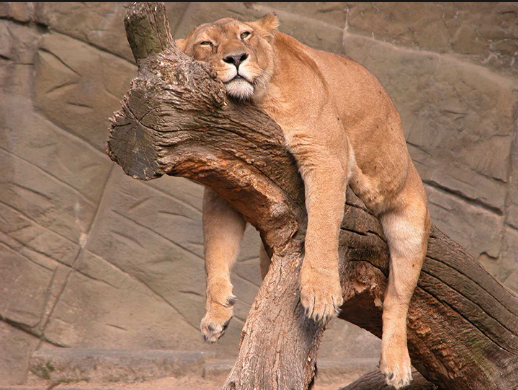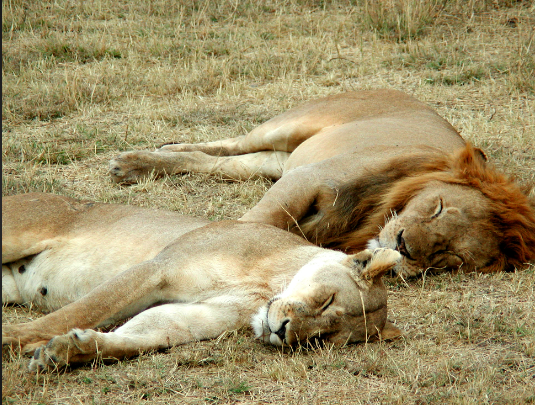How Many Hours Do Lions Sleep? Exploring the Sleeping Habits of the King of the Jungle
Lions, often referred to as the "King of the Jungle," are majestic and powerful creatures that captivate our imagination. These iconic big cats are known for their social behaviors, impressive manes, and formidable hunting skills. However, have you ever wondered how much time lions dedicate to sleep? In this article, we'll delve into the sleeping habits of lions and unveil the secrets behind their slumber.

How many hours do lion sleep?
1. The Slumber Patterns of Lions
Lions are primarily nocturnal animals, which means they are most active during the night and rest during the day.
This behavior is known as being crepuscular, where they hunt and perform various activities during the twilight hours.
This nocturnal behavior helps them avoid the scorching heat of the day and increases their chances of successful hunting.
2. Sleeping Hours of Lions
On average, lions can sleep for around 15 to 20 hours a day.
This extended period of rest is a crucial aspect of their survival strategy. During their active hours at night, lions engage in activities like hunting, socializing, and territorial marking.
The energy expended during these activities necessitates prolonged periods of sleep to recover.
3. Reasons Behind Extended Sleep
Several factors contribute to the extended sleep duration of lions:
3.1. Energy Conservation: Lions are apex predators, and their hunting activities demand a considerable amount of energy. By sleeping for long hours, they conserve energy that is essential for successful hunting and maintaining their status within their pride.
3.2. Digestion: After consuming a large meal from a hunt, lions need time for digestion. Sleeping helps the digestive process and allows them to make the most of their meal.
3.3. Social Behavior: Lions are social animals that live in prides. Prides consist of related females, their offspring, and a few resident males. Sleeping together in groups not only strengthens social bonds but also provides safety in numbers.
3.4. Thermoregulation: Lions' habitats can be quite hot, especially during the day. Sleeping during the hottest hours helps lions regulate their body temperature, preventing overheating.
3.5. Hunting Strategies: Lions rely on their keen senses, particularly their exceptional night vision, to hunt. Sleeping during the day allows them to be more alert and efficient hunters at night.
4.Sleeping Patterns within the Pride
Lions in a pride often exhibit synchronized sleeping patterns.
They tend to gather in shaded areas under trees or bushes during the day. The adult lions take turns keeping watch while the others sleep.
This guard duty helps protect the pride from potential threats while the majority of lions rest.
5. Cubs and Sleep
Lion cubs are much more active than adult lions, and their sleep patterns reflect their youthful energy.
Cubs spend a significant portion of their day playing, which is essential for their development.
As a result, they sleep less compared to their adult counterparts, averaging around 16 to 18 hours of sleep per day.

Lion sleep
The sleeping habits of lions are deeply intertwined with their survival strategies, social dynamics, and energy requirements. Sleeping for extended periods during the day allows these magnificent creatures to recharge, digest their meals, and effectively hunt during the cooler hours of the night. As apex predators, lions' sleeping patterns are a testament to their adaptability and prowess in the animal kingdom.